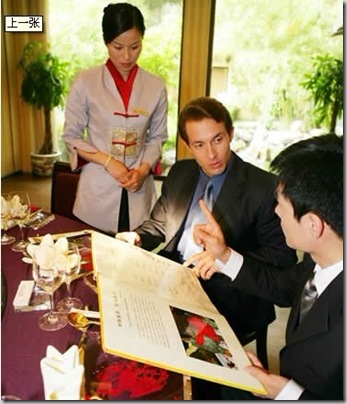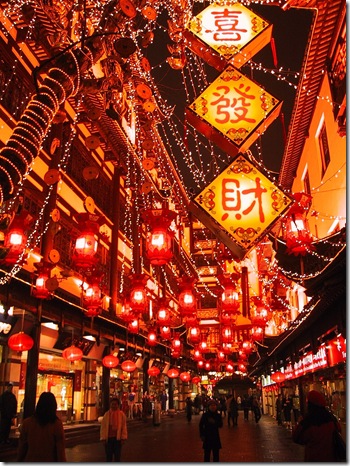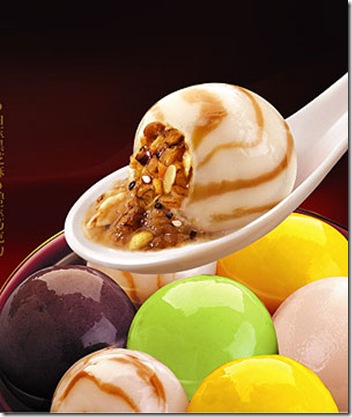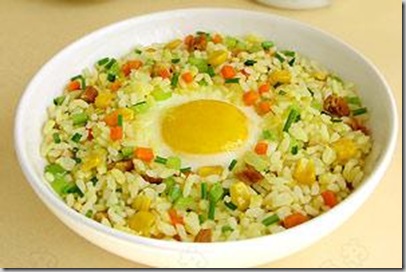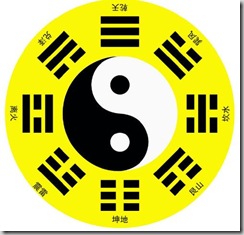Ordering Dishes in Mandarin
服务员:
Would you like to order now?
kě yǐ diǎn cài le ma ?
可 以点 菜了 吗 ?
客人:
I think I’m having some trouble here.
wǒ yù shàng diǎn má fán le 。
我 遇 上 点 麻 烦 了 。
服务员:
How may I help you?
wǒ néng bāng shàng máng ma ?
我 能 帮 上 忙 吗 ?
客人:
I would love to try Chinese food, but I just can’t read the menu.
wǒ xiǎng diǎn zhōng guó cài ,kě shì wǒ dú bù dǒng cài dān ā 。
我 想 点 中 国 菜 ,可 是 我 读 不 懂菜 单啊。
服务员:
Just point at the pictures of those you are interested in and I’ll explain them to you.
nà nín duì shén me cài gǎn xìng qù jiù zhǐ shén me cài ,wǒ lái gěi nín yī yī jiě shì 。
那 您 对 什 么 菜 感 兴 趣 就指 什 么 菜,我 来 给您一 一 解 释 。
客人:
Good idea. Let’s try that.
hǎo zhǔ yì ,wǒ men shì shì 。
好 主 意 ,我 们 试 试 。
Lantern Festival is coming!
The Lantern Festival falls on the 15th day of the 1st lunar month,usually in February or March.As early as the Han Dynasty,it had become a festival.People will eat rice dumplings on this day.Rice dumpling in Chinese is yuánxiāo or tāngyuán.tāngyuán sounds similar with tuanyuan,which means reunion.It tastes sweet and delicious.The most important activity is watching lanterns.Diffierent kinds of lanterns are hung in the streets. Some lanterns have riddles inside.If you know the answer you can get a prize.
Some words about Lantern Festival
Lantern Festival 元宵节 yuánxiāo jié
enjoy lantern show 看灯会 kàn dēnghuì
guess lantern riddles 猜灯谜 cāi dēngmí
eat rice dumpling 吃汤圆 chī tāngyuán
Ancient Chinese philosophy has influence in Chinese food culture
This is the traditional symbol for the forces of yin and yang, sometimes described as two fish swimming head to tail. The left half is yin and the right half is yang. Taken literally, yin and yang mean the dark side and sunny side of a hill.
People commonly think of yin and yang as opposing forces. However, it is really more appropriate to view them as complementary pairs. The Chinese believe problems arise not when the two forces are battling, but when there is an imbalance between them. Floods, divorce, or even a fire in the kitchen – all can be attributed to disharmony in the forces of yin and yang.
How does the concept of yin and yang relate to food?
A basic adherence to this philosophy can be found in ANY Chinese dish, from stir-fried beef with broccoli to sweet and sour pork. There is always a balance in color, flavors, and textures.
However, belief in the importance of following the principles of yin and yang in the diet extends further.
Certain foods have yin properties, while others have yang properties – Cooling or warm, fat or non-fat, high-calorie or low- calorie, and etc.
Almost no foodstuff is purely yin or yang – it’s more that one characteristic tends to dominate. It also reinforces that it is not so much the individual ingredients, as the the balance and contrast between ingredients in each dish, that is important. Interestingly, cooking methods also have more of a yin or yang property, as the list below demonstrates
Cooking Methods:
|
Yin Qualities |
Yang Qualities |
|
Boiling |
Deep-frying |
|
Poaching |
Roasting |
|
Steaming |
Stir-frying |
|
Yin Foods |
Yang Foods |
|
Bean Sprouts |
Bamboo |
|
Cabbage |
Beef |
|
Carrots |
Chicken |
|
Crab |
Eggs |
|
Cucumber |
Ginger |
|
Duck |
Glutinous Rice |
|
Tofu |
Mushrooms |
|
Watercress |
Sesame Oil |
|
Water |
Wine |
Chinese food emphasizes on consuming a diet that contains a healthy balance between yin and yang. You’ll find most Chinese dishes are made of a mixture of ingredients and each meal is made up of a combination of dishes.



